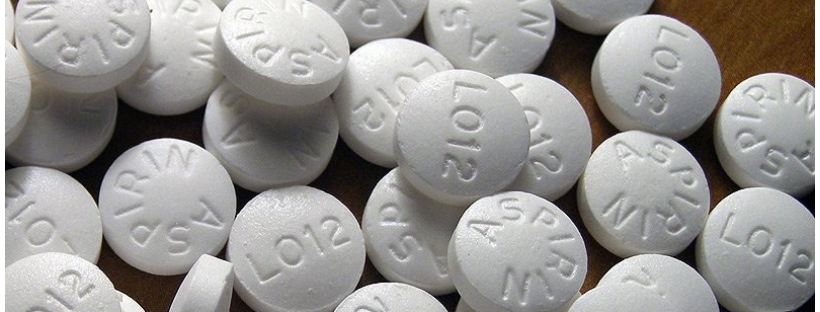We have known this beyond a shadow of a doubt for more than a decade, and the British Heart Foundation quit recommending it for prevention almost a decade ago, following a number of major analyses which found that the benefit you were likely to get was more or less the same as your risk of having serious internal bleeding – one of the well-known side effects of aspirin. In both cases about 350–400 people had to be treated for one to benefit or to be harmed – not exactly good odds. One study, for example, followed 29,000 people over eight years taking either an enteric-coated aspirin or a placebo. There was no difference in cardiovascular events or deaths, but a small increase in risk of hospital admission for a major haemorrhage (internal bleeding). 1
The first paper was a little hesitant saying that ‘aspirin is of uncertain net value as the reduction in occlusive events i.e. blocked arteries2’. The second didn’t beat about the bush. Its title said it all: ‘Don’t use aspirin for primary prevention of cardiovascular disease’3. And the third was just as clear: ‘Use of aspirin in primary prevention of cardiovascular disease… is not supported by the current evidence’4 The latest concludes: ‘The current totality of evidence provides only modest support for a benefit of aspirin in patients without clinical cardiovascular disease, which is offset by its risk. For every 1,000 subjects treated with aspirin over a 5-year period, aspirin would prevent 2.9 major cardiovascular events and cause 2.8 major bleeds.’5
I think you’ll agree that this is pretty unambiguous. But not only was the British Heart Foundation’s reversal of a recommendation they had been pushing for years announced in the equivalent of a whisper but also GPs have effectively ignored the whole thing. The prescribing of low-dose aspirin in England before those papers came out was around 32 million per year; the following year it was 31 million.
What if you’ve got heart disease and are at increased risk of a blood clot? The picture here is not so clear. A recent study followed 39,500 people over a three-year period who had had cardiovascular disease and either stayed on, or discontinued aspirin. There was no difference in risk of dying, but those who stopped aspirin had a slight increased risk of a non-fatal heart attack with four more heart attacks per 1,000 people per year. Strangely, this study didn’t report on the number of incidents of internal bleeding in those staying on aspirin, although they state that ‘recorded safety concerns were the second most common reason for discontinuation in this study’. 6
This latest study of more than 1,000 people found that, while it decreased risk of cardiovascular disease by 11 per cent, 250 patients would need to be on aspirin for five years to prevent a single heart attack, stroke or cardiovascular death. 7 Yet, one in 200 would suffer a major bleed, leading to death or disability. So the odds aren’t worth it.
References
1. Fowkes, et al., ‘Aspirin for Prevention of Cardiovascular events in a General Population Screened for a Low Ankle Brachial Index’, Journal of the American Medical Association, 2010 Mar;303(9): 841–8
2. C. Baigent, L. Blackwell, et al., Antithrombotic Trialists’ (ATT) Collaboration ‘Aspirin in the primary and secondary prevention of vascular disease: Collaborative meta-analysis of individual participant data from randomised trials’, Lancet, 2009 May;373(9678):1849–60
3. H. Barnett, P. Burrill, et al., ‘Don’t use aspirin for primary prevention of cardiovascular disease’, British Medical Journal, 2010;340:c1805
4. C. Shing Kwok and Y.K. Loke, ‘Critical Overview on the Benefits and Harms of Aspirin’, Pharmaceuticals, 2010;3:1491–1506;doi:10.3390/ph3051491
5. J.S. Berger, A. Lala, et.al., ‘Aspirin for the prevention of cardiovascular events in patients without clinical cardiovascular disease: A meta-analysis of randomized trials’, American Heart Journal, 2011 Jul;162(1):115–2
6. L.A. Rodríguez, L. Cea-Soriano, et al., ‘Discontinuation of low dose aspirin and risk of myocardial infarction: case-control study in UK primary care’, British Medical Journal, 2011 Jul ;343 d4094.
7. Zheng SL, Roddick AJ.., ‘Association of Aspirin Use for Primary Prevention With Cardiovascular Events and Bleeding Events: A Systematic Review and Meta-analysis’ .JAMA. 2019 Jan 22;321(3):277-287


Comments
Join the Conversation on our Facebook Page